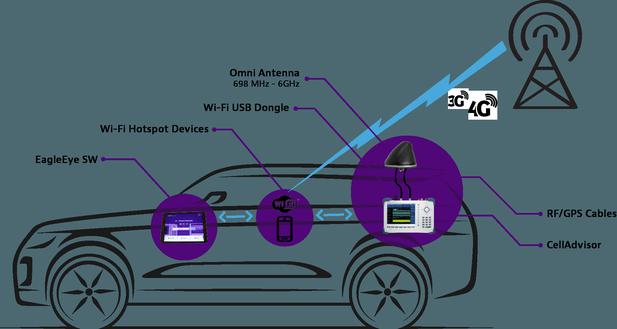Non-tariff barriers
Mainforms
Non-tariffbarriershavevariousformsandaremorehidden.AccordingtothepracticeoftheUS,EUandotherWTOmembers’tradebarrierinvestigations,non-tariffbarriersaremainlymanifestedinthefollowing12forms:
1.Customsbarriers
Customsbarriers-Customs&AdministrativeEntryProceduresbarrierstocustomsclearanceareusuallymanifestedinthefactthattherelevantauthoritiesoftheimportingcountryrequireimporterstoprovideverycomplicatedordifficulttoobtaininformation,oreventradesecrets,whenhandlingcustomsclearanceprocedures,therebyincreasingthecostofimportedproductsandaffectingtheirsmoothentryintoimports.Domesticmarket;customsclearanceproceduresaretime-consumingandlengthy,makingseasonalimportedproducts(suchasseasonalclothing,agriculturalproducts,etc.)losetradeopportunities;imposingunreasonablecustomsdutiesonimportedproducts.
2.IntellectualPropertyMeasures
IntellectualPropertyRightMeasures”Inpractice,someWTOmembersdonotcomplywiththeTRIPSAgreementontrade-relatedintellectualpropertymeasuresandconstituteThepracticeoftradebarriersismainlymanifestedinthefollowingaspects:
①Imperfectlegislation,lackoflegalprovisionsforcertainintellectualpropertyrightsprotectedbytheTRIPsAgreement,orviolationsofthebasicprinciplesoftheTRIPsAgreement.
②Theadministrativelawenforcementproceduresarecumbersome,protractedorexpensive.
③Weakjudicialreliefmeasures,ordeprivethepartiesoftherighttorequestjudicialreview,andfailtoprovideadequateprotectionofintellectualpropertyrights.
3.Importbans
ImportbansareimplementedbeyondtherelevantexceptionclausesofWTOrules(suchasgeneralexceptionsspecifiedinArticle20ofGATT,safetyexceptionsspecifiedinArticle21,etc.)Measurestorestrictorprohibitimports.
4.Importlicense
Importlicenseisdividedintoautomaticlicenseandnon-automaticlicense.Automaticlicensereferstothelicensethatcanbeobtainedwithoutgoingthroughtheapprovalprocess;non-automaticlicensereferstothelicensethatmustbeobtainedthroughtheapprovalprocess,whichcanbedividedintolicenseswithquantitativerestrictions(usuallyimportquotamanagement)andlicenseswithoutquantitativerestrictions(Usuallyasingleimportlicensemanagement).Tradebarriersinthemanagementofimportquotasareoftenmanifestedas:unreasonablequotas;unreasonablequotadistributionstandardsorunfairdistribution.Inasingleimportlicensemanagement,tradebarriersaremainlymanifestedas:managementproceduresarenottransparent;proceduresforreviewandissuanceoflicensesaretoocomplicatedorrequireunnecessarydocuments;approvaltimeistoolong,etc.
5.TechnicalTradeBarriers
TechnicalTradeBarriers-Standards(TechnicalTradeBarriers)AccordingtotherelevantprovisionsoftheWTO"TechnicalTradeBarriersAgreement"(hereinafterreferredtoas"TBTAgreement"),theWTOMembershavetherighttoformulateandimplementtechnicalregulationsandstandardsdesignedtoprotectnationalorregionalsecurityinterests,protectthelifeorhealthofhumans,animalsorplants,protecttheenvironment,preventfraud,andensurethequalityofexportedproducts,anddeterminewhetherproductscomplywiththesetechnologies.Conformityassessmentproceduresforregulationsandstandards.Theabove-mentionedmeasuresarecollectivelyreferredtoasTBTmeasures,whichcanbedividedintothreecategories,namely,technicalregulations,standardsandconformityassessmentprocedures.
Technicalregulations:refertodocumentsthatstipulatemandatoryproductcharacteristicsorrelatedprocessesandproductionmethods(includingapplicablemanagementregulations),aswellasspecificterms,symbols,Documentsrequiredforpackaging,markingorlabeling.Thesedocumentscanbenationallaws,regulations,andrules,orothernormativedocuments,aswellastechnicalspecifications,guidelines,guidelines,etc.,formulatedbynon-governmentalorganizationsauthorizedbythegovernment.Technicalregulationshaveamandatoryfeature,thatis,onlyproductsthatmeettherequirementsofthetechnicalregulationscanbesoldorimported.Forexample,acountrypromulgatedtechnicalregulationsthatrequirelightersbelowacertainpricetobeequippedwithdevicesthatpreventchildrenfromopening.Thismethodoflinkingcommoditypriceswithtechnicalstandardslacksscientificityandrationality,andthusconstitutesatradebarrier.
Standard:Referstotherules,guidelinesorcharacteristicsofproductsorrelatedprocessesandproductionmethodsthatareapprovedbyrecognizedinstitutions,arenotenforced,andareforgeneralorrepeateduse.Thedocumentmayalsoincludespecificterminology,symbols,packaging,marking,orlabelingrequirementsthatarespecificallyapplicabletotheproduct,process,orproductionmethod.Accordingtothe"TBTAgreement",thestandardisvoluntary.However,itshouldbenotedthatinpractice,somecountriesdividestandardsintomandatorystandardsandrecommendedstandards,andtheirmandatorystandardshavethenatureoftechnicalregulations.Somecountries,especiallysomedevelopedcountries,usetheireconomicandtechnologicaladvantagestousestandardsasanimportantmeansofbuildingtradebarrierstorestrictimportsofproductsfromothertradingpartners,especiallydevelopingcountries.Forexample,somecountrieshavesetstrictstandardsthataredifficultforimportedproductstomeet,andthusaffectconsumerpreferences,whichinfactconstitutesanobstacletoimportedproducts.
Conformityassessmentprocedure:referstoanyprocedureuseddirectlyorindirectlytodeterminewhethertherelevantrequirementsintechnicalregulationsorstandardsaremet.Theconformityassessmentproceduresstipulatedinthe"TBTAgreement"include:sampling,testingandinspectionprocedures;conformityassessment,verificationandconformityassuranceprocedures;registration,accreditationandapprovalandtheircombinations.Inpractice,opaqueordiscriminatoryconformityassessmentproceduresoftenconstituteobstaclestoimportedproducts.Forexample,accordingtothe"TBTAgreement",beforeamemberissuestechnicalregulationsorconformityassessmentproceduresthatdonothaveinternationalstandardsorareinconsistentwithinternationalstandardsandmayhaveasignificantimpactonthetradeofothermembers,theyneedtonotifytheWTO/TBTcommitteeinadvanceandgivethemtoothermembersSetacertaintimeforcommentsandconsidertheirreasonableopinionsasmuchaspossible.However,somemembersissueandimplementrelevanttechnicalregulations,standardsorconformityassessmentprocedureswithoutconsultingothermembers,sothatothermembersarereturnedwithouttheirknowledgebecausetheirexportedproductsdonotcomplywiththerelevantregulationsoftheimportingcountry.,Detained,reducedprice,ordestroyed.ThispracticeviolatedthetransparencyprincipleoftheTBTAgreement,seriouslyaffectedtheexporttradeofothermembers,andconstitutedatradebarrier.Somemembershaveunreasonablydelayedinthespecificproceduresofsampling,testingandinspection,whichconstitutedunreasonablerestrictionsonimportedproducts.
The"TBTAgreement"requiresWTOmemberstofollowthefollowingprincipleswhenformulatingandimplementingTBTmeasuressuchastechnicalregulations,standardsandconformityassessmentprocedures:Theprincipleofavoidingunnecessaryobstaclestotrade(minimalimpactontradePrinciples),non-discriminationprinciples(most-favoured-nationtreatmentprinciplesandnationaltreatmentprinciples),principlesofharmonizationwithinternationalstandards,principlesofequivalenceoftechnicalregulations,principlesofmutualrecognitionofconformityassessmentprocedures,principlesoftransparency,etc.However,inpractice,somecountries(regions)havenotstrictlyabidedbytheaboveprinciplesandformulatedcomplex,demanding,andchangeableTBTmeasurestorestrictproductsfromothercountries(regions)fromenteringtheirmarkets.Forexample,acountry’stechnicalrequirementsforimportedproductsarehigherthanthatofthecountry’sproducts,orthetechnicalrequirementsforproductsimportedfromaspecificcountryarehigherthansimilarproductsimportedfromothercountries,whichviolatesthenon-discriminationprincipleoftheTBTAgreement.Therefore,alltechnicalregulations,standardsandconformityassessmentproceduresformulatedandimplementedinviolationoftherelevantprinciplesoftheTBTAgreementconstitutetechnicalbarrierstotrade.
6.SanitaryandPhytosanitaryMeasures
SanitaryandPhytosanitaryMeasures-Standards(GovernmentAcceptance&TestingMethodsandStandards)"AccordingtotheWTOAgreementontheImplementationofSanitaryandPhytosanitaryMeasures(Followingtherelevantprovisionsofthe"SPSAgreement"),WTOmembershavetherighttotakethefollowingmeasurestoprotectthelifeandhealthofhumans,animalsandplants:
①ProtectthelifeorhealthofanimalsorplantsintheterritoriesofWTOmembersAvoidtherisksofpestsordiseases,theintroduction,colonizationorspreadofdiseasedorganismsorpathogenicorganisms;
②ProtectthelivesorhealthofhumansoranimalsintheterritoriesofWTOmembersfromfood,Beverageorfeedadditives,pollutants,toxinsorpathogenicorganisms;
③ProtecthumanlifeorhealthintheterritoriesofWTOmembersfromdiseasescarriedbyanimals,plants,oranimalandplantproductsOrtheriskscausedbytheintroduction,establishmentorspreadofpests;
④Preventorcontrolotherdamagescausedbytheintroduction,establishmentorspreadofpestsintheterritoriesofWTOmembers.
Theabove-mentionedmeasuresarecollectivelyreferredtoasSPSmeasures,whichspecificallyinclude:allrelevantlaws,decrees,regulations,requirementsandprocedures,especiallyfinalproductstandards;proceduresandproductionmethods;inspection,quarantine,inspection,certificationandApprovalprocedures;variousquarantinetreatments,includingrequirementsrelatedtothetransportationofanimalsorplantsorrelatedtothesubstancesneededtomaintainthesurvivalofanimalsandplantsduringtransportation;regulationsonstatisticalmethods,samplingproceduresandriskassessmentmethods;andfoodsafetyDirectlyrelatedtopackagingandlabelingrequirements.
Accordingtothe"SPSAgreement",WTOmembersmustfollowtheprinciplesofscientificity,equivalence,principlesofharmonizationwithinternationalstandards,transparency,consistencyofSPSmeasures,andtradeTheprincipleofleastimpact,theprincipleofregionalizationofanimalandplantepidemics,etc.Therefore,SPSmeasuresthatlackscientificbasisanddonotcomplywiththeaboveprinciplesconstitutetradebarriers.
Forexample,acountryonlybanstheimportofsuchproductsfromthatcountryonthegroundsofdetectingpollutantsthatdonotcomplywiththe"SPSAgreement"inindividualbatchesofproductsfromanothercountry,whichviolatesTheimplementationofSPSmeasuresinthe"SPSAgreement"shouldbebasedontheprincipleofnecessityandminimalimpactontrade,whichconstitutesatradebarrier;acountry,basedontheoccurrenceofanimalandplantepidemicsinindividualfarmsorareasinanothercountry,completelyprohibitsallimportsfromthatcountryAnimals,plantsandtheirproductsviolatedtheregionalizationprinciplesoftheSPSAgreementandconstitutedadisguisedrestrictionontrade;acountry’squarantinerequirementsforimportedsalmonarestricterthanthequarantinerequirementsforthecountry’sproducts,ormaybestricterthanimportsThequarantinerequirementsofotherfishinfectedwiththesamediseaseassalmon,therebyrestrictingorprohibitingtheimportofsalmon,violatedtheprincipleofconsistencyofthe"SPSAgreement"andconstitutedatradebarrier.
7.Traderemedymeasures
Traderemedymeasuresincludeanti-dumping,countervailingandsafeguardmeasuresagainstimportedproducts.Unreasonableuseorabuseoftheseremedieswillcreatetradebarrierstoimportedproducts.
Inanti-dumpingandanti-subsidyinvestigations,somecountriesoftendiscriminateagainstChineseproductsbasedontheso-called"non-marketeconomy"issuesintheinvestigationanddeterminationofdumpingandsubsidies.Totakeamoreunreasonableapproach.Inanti-dumpinginvestigations,importingcountriescanalsotakeanti-circumventionandanti-absorptionmeasures;ifthesemeasuresareabused,theywillalsoconstituteunreasonableobstaclestoimportedproducts.
①Anti-circumvention.Theso-calledcircumventionreferstoanexportproductbeingimplementedbyanothercountry'santi-dumpingmeasures,theexporterthroughvariousmeanstoreduceoravoidtheexportproductbeingleviedanti-dumpingdutiesorbeingsubjecttootherformsofanti-dumpingmeasures;anti-circumventionisReferstomeasurestakenbyimportingcountriestopreventforeignexportersfromevadinganti-dumpingmeasures.
②Anti-absorption.Theso-calledabsorptionmeansthatwhentheimportingcountryhasimposedanti-dumpingdutiesonanimportedproduct,theexporteradoptsthemethodofunder-reportingtheexportpricetoreducetheburdenoftheimporterduetotheanti-dumpingduty,therebyreducingtheanti-dumpingdutyontheimportoftheproduct.Theimpactofthecountry’smarketshare.Inthiscase,theimportingcountrycanconductananti-absorptioninvestigation,thatis,iftheimportingcountryfindsthattheanti-dumpingmeasureshavenothadtheexpectedimpactonthesellingpriceofthedumpedproduct,itcanre-investigatetodetermineanewdumpingmarginandultimatelyincreasetheanti-dumpingdutyrate.
Whenacountryadoptsanti-circumventionandanti-absorptioninvestigations,ifthestandardsadoptedindeterminingtheoriginofimportedproductsandexportpricesarenotobjectiveandfair,itwillleadtoinappropriateorunreasonableanti-circumvention,Anti-absorptionmeasurestorestricttheimportofproducts,anti-circumventionandanti-absorptionmeasuresmayactastradebarriers.Forexample,aWTOmemberhasconductedunreasonableanti-dumping,anti-circumvention,andanti-absorptioninvestigationsonglufosinateoriginatinginChina,andruledthata24%anti-dumpingdutywasimposedintheanti-dumpinginvestigation,andthentheanti-dumpinginvestigationThetaxrateincreasedto48%,forcingourproductstowithdrawfromthemembermarket.
Intheinvestigationofsafeguardmeasures,somecountriesoftenhavegreaterarbitrarinessinthedeterminationofissuessuchasimportgrowthandindustrialdamage,andthenbasedonthisarbitrarilydeterminationtoimposenoReasonablesafeguards.
8.Discriminationonimportedproducts
Discriminationonimportedproductsingovernmentprocurementcanbedividedintotwosituations:
①SignatoriesoftheWTO"GovernmentProcurementAgreement"Discriminatorymeasuresagainstimportedproductsadoptedduringtheperiod.The"GovernmentProcurementAgreement"isaplurilateralagreement,thatis,onlythemembersthathavesignedtheagreementareboundbytherulesoftheagreement.Theagreementstipulatesthatthesignatoriesoftheagreementmustmaintaintransparencyingovernmentprocurementandgiveothermembersequaltreatmentinparticipatingingovernmentprocurement.Inpractice,someWTOmembersoftenimpedethefairparticipationofforeignproductsinprocurementthroughlesstransparentprocurementprocedures.Forexample,alargenumberoflawsinacertaincountryprovidefortheimplementationofthedomesticpriorityprincipleingovernmentprocurement;certainspecialpreferentialtreatmentsfortheprocurementofproductsfromthatcountry;complicatedprocurementproceduresareformulatedtopreventforeignproductsfromparticipatinginprocurementbiddingfairly;Byarbitrarilydeprivingforeignproductsoftheopportunitytoparticipateinprocurement.
②Discriminatorymeasuresagainstimportedproductstakenbetweensignatoriesofnon-WTO"GovernmentProcurementAgreement".Inareaswherecountriesvoluntarilyopentheirgovernmentprocurementtoforeigncountries,therewillalsobediscriminationagainstimportedproducts.Inpractice,thesediscriminatorymeasuresaremainlymanifestedasaviolationofmost-favored-nationtreatmentanddifferentialtreatmentofproductsfromdifferentcountries,thusconstitutingdiscriminationagainstproductsofaspecificcountry.
9.Exportrestrictions
Thespecificmanifestationsare:
①Passtheextraterritorialityclausesinthecountry’sdomesticlegislationtorestrictorObstructthetradebetweenothercountriesandthirdcountries,thuscreatingatradebarrierforothercountries’productstoexporttothatcountryorthethirdcountry’smarket.Forexample,inaccordancewithitsexportmanagementlegislation,acountryhasestablishedacompletesetofexportcontrolsystemsfordual-useproductsandrestrictscompaniesfromothercountriesfromsellingsuchproductstodestinationsthatarenotauthorized.Sanctionsagainstcompaniesinothercountriesthatviolatethecountry’sexportcontrollawsandregulations,restrictexportsofsuchcompaniestospecificthirdcountries,andevenprohibittheimportofallproductsofsuchcompanies.
②Thearbitraryimplementationofexportrestrictionsonsomerawmaterialsandsemi-manufacturedproductshasrestrictedtheproductionandexportofrelatedmanufacturedproductsfromimportingcountriesoftheserawmaterialsandsemi-finishedproducts.
10.Subsidies
TheWTO"AgreementonSubsidiesandCountervailingMeasures"establishesrelativelystrictrestrictionsontheuseofsubsidiesbymembers,andexportsubsidiesandimportsubstitutionsubsidiesareexplicitlyprohibited.category.However,inpractice,someWTOmembersstillusevariousformsofexportsubsidiestostimulateexports,severelydistortingtrade.
Intermsofagriculturalsubsidies,theWTO’s"AgriculturalAgreement"haslaiddownbasicrulesforagriculturaldomesticsupportandexportsubsidies.Ifamember’sdomesticsupportorexportsubsidiesforagriculturalproductsdonotcomplywiththeprovisionsofthe"AgriculturalAgreement",itconstitutesatradebarriertoimportedagriculturalproducts.
Thespecificconditionsofagriculturalsubsidiesare:
①Domesticsupport.Accordingtothetradedistortiondegreeofvariousdomesticsupportmeasures,the"AgricultureAgreement"dividesthemintothreecategories,namely"greenbox"measures,"bluebox"measuresand"yellowbox"measures.The“greenbox”measuresrefertogovernmentserviceplansprovidedbythegovernment,thecostsofwhicharenotpassedontoconsumers,andthathavenopricesupportforproducers.Theymainlyincludegeneralgovernmentservicesandpublicreservesubsidiesforfoodsecuritypurposes.Andothermeasures.Thesemeasureswillhavenooronlyminordistortingeffectsonagriculturaltrade,andmembersdonothavetoundertakerestraintandreductionobligations."Bluebox"measuresrefertosubsidiesbasedonafixedareaandoutput(suchasfallowsubsidies),subsidiesbasedon85%orlessofthebaseproductionlevel,andsubsidiesbasedonafixednumberoflivestock.Thesesubsidiesareusuallypartoftheagriculturalproductionrestrictionplan,andthemembersarenotrequiredtoundertakereductionobligations.The"yellowbox"measuresrefertothegovernment'sdirectpriceinterventionandsubsidiesforagriculturalproducts,includingsubsidiesforagriculturalinputssuchasseeds,fertilizers,andirrigation,andsubsidiesforagriculturalproductmarketingloans.The"yellowbox"measuresdistortthetradeofagriculturalproducts,andthemembersmustundertaketheobligationofrestraintandreduction.The"AgriculturalAgreement"requiresallmemberstousethecomprehensivesupportamounttocalculatethemonetaryvalueoftheir"yellowbox"measures,andusethisasayardsticktograduallyreduceit.Butfordevelopingcountries,some"yellowbox"measuresarealsoincludedinthescopeofexemptionfromreduction,mainlyincludingagriculturalinvestmentsubsidies,agriculturalinputsubsidiesprovidedtoproducersinlow-incomeorresource-poorareas,andtoencourageproducersnottoproduceSupportprovidedbyillegalnarcoticcrops,etc.Inpractice,somecountrieshavefailedtograduallyreducethe"yellowbox"measuresinaccordancewiththerules,butstillmaintainarelativelyhighlevelofsubsidies,whichconstitutestradebarriers.

②Exportsubsidies.The"AgricultureAgreement"stipulatesthattheexportsubsidiesshouldbegraduallyreducedduringtheimplementationperiodbasedontheagriculturalexportsubsidiesinthebaseperiodofthereduction;the"AgricultureAgreement"alsospecifiesthescopeofexportsubsidiesincludedinthereductioncommitmentsandcontrolstheexpansionofsubsidies.Andothercontent.However,somecountrieshavefailedtostrictlyabidebytherelevantprovisionsofthe"AgriculturalAgreement."Forexample,acountrymaintainsalargenumberofsubsidiesinthisareaaccordingtoits"DairyProductsExportEncouragementProgram",whichnotonlyhinderstheimportofsimilarproductsfromothercountries,butalsoweakensthecompetitivenessofsimilarproductsfromothercountriesinthird-countrymarketsandconstitutesatradebarrier.
11.Tradeinservices
Inpractice,barriersthathinderforeignservicesorserviceprovidersfromenteringthecountry’smarketmayinclude:
①AccessconditionsToostrictorlackoftransparency.
②Longapprovalprocess.
③Setvariousformsofrestrictionsontheserviceoperationsofserviceproviders,orincreasetheiroperationalburdens.
④Unfaircompetitionfacedbyforeignserviceproviders.
12.Otherbarriers
Inpractice,thereareotherbarriersthataredifficulttobeclassifiedintotheabove-mentionedtradebarriers.
Features
Comparedwithtariffmeasures,non-tariffmeasuresmainlyhavethefollowingthreeobviouscharacteristics:
Firstofall,non-tariffmeasureshavegreateradvantagesthantariffs.Flexibilityandpertinence.Theformulationoftariffsoftenrequirescertainlegislativeprocedures,adjustmentsorchangestotaxrates,andcertainlegalproceduresandformalities.Therefore,tariffshaveacertaincontinuity.Theformulationandimplementationofnon-tariffmeasuresusuallyadoptadministrativeprocedures,whicharerelativelyquicktoformulateandsimple.Thecorrespondingimportrestrictionmeasurescanbetakenorreplacedatanytimeforacertaincountryandacertaincommodity,soastoachievetheimportrestrictionquickly.Purpose.
Secondly,theprotectiveeffectofnon-tariffmeasuresisstrongerandmoredirectthanthatoftariffs.Tariffmeasuresincreasethecostandpriceofgoodsbyimposingtariffs,therebyweakeningtheircompetitiveness.Therefore,theirprotectiveeffectsareindirect.Somenon-tariffmeasures,suchasimportquotas,pre-limitthequantityandamountofimports.Ifthequotaisexceeded,importswillbedirectlybanned,sothatthegoalsthataredifficulttoachievebytariffmeasurescanbeachievedquicklyanddirectly.
Finally,non-tariffmeasuresaremorecovertanddiscriminatorythantariffs.Tariffmeasures,includingtaxratedeterminationandcollectionmethodsaretransparent,andexporterscanobtainrelevantinformationrelativelyeasily.Inaddition,tariffmeasuresarealsolessdiscriminatory,andtheyareoftenrestrictedbybilateralrelationsandinternationalmultilateraltradeagreements.However,somenon-tariffmeasuresareoftenpoorlytransparent,concealed,andhighlytargeted,whichmakesiteasytoimposedifferentialtreatmentonothercountries.
Impact
Non-tariffbarriershavemanynamesandcoverawiderange.Therefore,itsimpactoninternationaltradeandrelatedimportandexportcountriesisdifficulttoestimate,butitcanbeseenfromthefollowingaspectsLook:
(1)Impactonthedevelopmentofinternationaltrade
Non-tariffbarriersplayagreatroleinhinderingthedevelopmentofinternationaltrade.Whenotherconditionsremainunchanged,thedegreeofstrengtheningofworldwidenon-tariffbarriersisinverselyproportionaltothegrowthrateofinternationaltrade.Forexample,fromthe1950stotheearly1970saftertheSecondWorldWar,tariffsdroppedsignificantly.Atthesametime,developedcountriesalsogreatlyrelaxedandabolishednon-tariffmeasuressuchasimportquantityrestrictions.Promotingthedevelopmentofinternationaltrade,from1950to1973,theaveragegrowthrateofworldtradevolumereached7.2%.Onthecontrary,afterthemid-1970s,manycountriesadoptedformalnon-tariffbarriermeasures,whichaffectedthedevelopmentofinternationaltrade.From1973to1979,theworldtradevolumegrewatanaverageannualrateof4.5%,andfrom1980to1985,Anddroppedtoabout3%.
(2)ImpactonCommodityStructureandGeographicalDirection
Non-tariffbarriersreturnToacertainextent,itaffectsthechangeratioofinternationaltradecommoditystructureandgeographicdirection.AfterWorldWarII,thegeneraltrendofproductsaffectedbynon-tariffbarriersis:agriculturalproducttradeisaffectedmorethanindustrialproducts,labor-intensiveproducttradeisaffectedmorethantechnology-intensiveproducts,andtheaffectedcountriesaredevelopingcountriesandTherearemoresocialistcountriesthandevelopedcountries,andthedegreeismoreserious.Thesephenomenahaveseriouslyaffectedthechangesinthestructureandgeographicdirectionofinternationaltradecommodities,andhavecausedmajordamagetothedevelopmentofforeigntradeindevelopingcountriesandsocialistcountries.
(3)Impactonimportingcountries
Forimportingcountries,tariffbarrierscanrestrictimportsandprotectthecountry’smarketandproduction,butItwillalsocausepricesinthedomesticmarketoftheimportingcountrytorise.Forexample,iftheimportingcountryadoptsdirectimportquantityrestrictionmeasures,nomatterhowforeignpricesriseorfall,andnomatterhowlargethedomesticdemandis,theywillnotincreaseimports.Theincreaseindomesticpricesprotectstheproductionofsimilarproductsintheimportingcountry,whichcanplayaroleinprotectingandpromotingtheproductionanddevelopmentofrelatedproductsinthecountryundercertainconditions.
However,thestrengtheningofnon-tariffbarrierswillcauseconsumersinimportingcountriestopayahugeprice,andtheywillhavetopaymoremoneytobuythegoodstheyneed,andthecostandexportpriceofdomesticexportswillalsoTheincreaseinpricesduetorisingpricesweakensthecompetitivenessofexportcommodities.Inordertoincreaseexports,thegovernmentcanonlyadoptmeasuressuchasexportsubsidies,therebyincreasingnationalbudgetexpendituresandincreasingthetaxburdenofthepeople.
(4)ImpactonExportCountryImpact
Importingcountriesstrengthennon-tariffbarriermeasuresInparticular,theimplementationofdirectimportquantityrestrictionsandafixedimportquantitywillseverelyaffecttheexportvolumeandpricesofexportingcountries,resultinginthegrowthrateofexportcommoditiesorthereductionofexportquantitiesandthedeclineofexportprices.Generallyspeaking,ifthesupplyelasticityoftheexportgoodsoftheexportingcountryisgreater,thepricedropofthesegoodscausedbythenon-tariffbarriersoftheimportingcountrywillbesmaller;onthecontrary,iftheexportingcountry’sexportgoodshaveahigherelasticityofsupplyIfitissmaller,thepriceofthesecommoditieswillbeaffectedbythenon-tariffbarriersoftheimportingcountryandthepricedropwillbegreater.Sincemostofthedevelopingcountrieshaverelativelysmallsupplyelasticityofexportproducts,thestrengtheningofglobalnon-tariffbarriershasseverelydamageddevelopingcountries.
Developmenttrend
Sincethe1990s,withtheunremittingeffortsoftheWTOandvariouscountries’bilateralandmultilateraltradenegotiations,traditionalnon-tariffbarrierssuchasquotasandimportlicensesHowever,atthesametime,thefieldofnon-tariffbarriershasshownanewdevelopmenttrend,whichisprominentlymanifestedin:(1)Anti-dumpingmeasurescontinuetoincrease
Theoriginalpurposewastoresistunfairpracticesininternationaltradeandeliminatepricediscrimination.However,somecountriesuseitasameansofstrategiccompetitiontocombatcompetitorsandpreventtheirpowerfulweaponsfrombeingused,thusgivingthemastrongtradeprotectioncolor.Judgingfromitsdevelopmenttrend,itwillbecomethedominantinternationaltradebarrierinthe21stcentury.Asfarastheimplementationofanti-dumpingisconcerned,Chinaisstillthemostaffectedcountry.Accordingtostatistics,ofthe101newanti-dumpingcasesfiledfromJanuarytoJune2004,30wereforChineseproducts,anincreaseof18casesoverthesameperiodin2003.
(2)Therapiddevelopmentoftechnicalbarrierstotrade(TBT)
AstheWTOagreementontechnicalbarriersdoesnotdenytherationalityandnecessityoftheexistenceofTBT,itallowscountriestoadapttotheirowncharacteristicsTheformulationoftechnicalstandardsthataredifferentfromthoseofothercountrieshasalloweddevelopedcountriestousethislegalbasistoformulateavarietyoftechnicalregulations,technicalstandards,qualitycertificationandothermeanstorestrictimportsfromothercountries.Withtheadvancementofscienceandthedeepeningoftechnologicalinnovation,newtechnicalstandardswillcontinuetoemergeandbecontinuouslyincorporatedintonewtechnicalregulations.Technologicalinnovationhasmadetestingequipment,methods,andmethodsmoreadvanced,andsomedevelopedWTOmembercountrieshavegraduallyimprovedthelevelofusingTBT,andthestandardsandrequirementsforimportedproductshavebecomemoredetailedanddemanding.Forexample,Japan’spesticideresiduesonChinesericehaveincreasedfromtheoriginal65testindicatorsto104;inaddition,fromtheperspectiveofthefieldsinvolved,TBTstartsfromtheproductionfieldandgraduallyexpandstothetradefield,fromtangiblegoodstofinanceandinformation.Andotherservices,aswellasvariousfieldsofinvestmentandintellectualpropertyrights.
(3)Theimplementationofquantityguaranteeisfrequentlyused
Themainformsofquantityguaranteemeasuresareimportquotas,voluntaryexportquotasandimportprohibitions.Quantityguaranteemeasureshavedirectandrapideffectsonexportrestrictions.Therefore,manyWesterncountrieshaveusedthecharacteristicsoftherapiddevelopmentofforeigntradeindevelopingcountriesasameansofattackingthe"surginginquantity"ofexportsofothercountries.Amongthem,themostthreateningisthe"specialprotectionclauses"formulatedspecificallyforChina.Forexample,onJune23,2005,theBraziliangovernmentwilltakespecialsafeguardmeasuresforproductsoriginatinginChinatotemporarilyprotectthedomesticindustryinBrazil.ForotherspecificproductsinChina.Inaddition,theEU,theUnitedStatesandothermajorexportingcountriesinChinaalsohaveatendencytoturntospecialprotectionclauseswhentheycannotfindsuitablereasonstoimplementtechnicaltradebarriersandanti-dumpingmeasures.
(4)Thenameofgreenbarriershasincreasedsharply
Tradeandenvironmentalissuesaregettingmoreandmoreattentionfromtheinternationalcommunity,governmentsandpeopleofvariouscountries,andhavebecomeoneofthefocalissuesintheinternationalpoliticalandeconomicfields.Therefore,Westerndevelopedcountrieshavetakenadvantageofthegreenwavesweepingtheworldandtherisingtrendoftheworld’sgreeneconomy,underthebannerofprotectingnaturalresources,protectingtheenvironmentandhumanhealth,andformulatingaseriesofcomplexanddemandingenvironmentalprotectionsystemsandstandards.Productsandtheirservicessetupbarriers.Suchasthe"whiteswansystem"ofthefourNordiccountries,the"EUsystem"oftheEuropeanUnion,andthe"eco-labelsystem"ofJapan.
(5)Useofgrayareameasures
GraymeasuressuchaspreferentialrulesoforiginandgovernmentprocurementpoliciesarestilloutsidetheWTO’smultilateralbindingrules.Chinaiswidelyusedasameansoftradeprotection.Becauseofthehugeeconomicbenefitshiddenbehindtherulesoforiginandgovernmentprocurementpolicies,thegovernmentsofvariouscountriesformulatevariouslawsandregulationstorestricttheimportofproductsfromothercountriesinordertoprotecttheinterestsofproducersinthatcountry.
(6)Theriseoflaborstandardsandanimalwelfare
AlthoughthetwomeasuresoflaborstandardsandanimalwelfarehavenotbeenincludedintheinternationaltradeThecountry’scomparativeadvantagesinlaborandrawmaterialshavebeentryingtomakeitformallyaWTOsystem,andithasgraduallybeguntousethismeasuretorestrictexportsfromdevelopingcountries.Intermsofanimalwelfare,forexample,in2002,abatchoflivepigsinUkrainearrivedinFranceafteralongjourneyofmorethan60hoursbutwasrejectedbytheFrenchauthorities.Thereasonwasthatthewelfareofthepigswasnottakenintoaccountduringthetransportationprocessandtheprescribedtimewasnottakenduringthetransportation.Intermsoflaborstandards,accordingtoasurveyorganizedbytheAmericanChamberofCommerce,currently50%ofmultinationalcompaniesandforeigntradecompaniessaidthatiftheSA8000standardisimplemented,theywillre-signnewprocurementcontractswithChinesecompanies.SinceChina'sproductstructureismostlylabor-intensive,andSA8000ismainlyforlabor-intensiveproducts,thiswillundoubtedlyhaveahugeimpactonChina'sforeigntradedevelopment.
Thereisnodoubtthatnon-tariffbarrierswillplayanincreasinglyimportantroleininternationaltrade,andnewnon-tariffbarrierswillcontinuetoappear.Inordertodealwiththeimpactofforeignnon-tariffbarriers,theauthorbelievesthatthefollowingcountermeasuresshouldbetaken.
(1)Carryouttechnologicalinnovationandimproveproductquality
Enterprisesshouldtaketheopportunitytodealwithnon-tariffbarriers,relyontechnologicalprogresstoadjustthestructureofexportcommodities,promoteindustrialupgrading,andincreaseChina'sexportcommoditiesThetechnologicalcontentandprocessinglevel.Thefirstistostrengthentechnologyresearchanddevelopment,especiallytheresearchanddevelopmentofkeytechnologies,tocontinuouslydevelopnewmaterials,newenergy,newprocesses,newformulas,newmethods,andlaunchnewproducts,soastoincreasethetechnologicalcontentofproductsandpromotetheproductstructuretobehigh-techproductsandhigh-techproducts.Transformationofvalue-addedproducts;thesecondistoincreasethedegreeofdeepprocessingofproductsandproduceintermediatesintofinishedproducts,whichcannotonlyincreasetheprofitsofenterprises,butalsoavoidvariousformsoftradebarriers.
(2)Givefullplaytotheroleofindustryassociations
Inthecompetitionofmarketeconomy,themarketingmethodofsinglesisnotsuitablefortheneedsofparticipatingintheinternationalproductmarketcompetitionafterjoiningtheWTO.Throughtheindustryassociation,thelinkbetweenthegovernmentandenterprises,itcanhelpproducerscoordinateexportprices,reducepricecompetitionandcannibalismforChineseproducts,andprovideservicesinexternalpublicity,negotiation,sales,etc.,andundertakelarge-scaleproduction.Workbeforeandafterchildbirth.Inaddition,itisalsopossibletotrackchangesinforeignnon-tariffbarriermeasuressothatcompaniescankeepabreastofforeignmarkettradebarriersinatimelymanner.
(3)Acceleratetheformulationandimprovementoftechnicallabelsandregulations
Inresponsetotechnicalbarriers,Chinaurgentlyneedstoimprovethetechnicalstandardsandtechnicalregulationssystem.First,itisnecessarytograduallyestablishacertificationsystemfortechnicalregulationsandstandardsthatisinlinewithinternationalstandards.AccordingtorelevantWTOagreements,wemustvigorouslypromotethecertificationsystemoforiginmarks,activelyimplementthecertificationofISO19000,ISO14000marksandSA8000standards,andacceleratetheintegrationofinternationalenvironmentalstandards.Thesecondistoincreasetheenterprise'sawarenessoftechnologyandstandardizationlegalsystemtoadapttothespecialrequirementsofinternationaltradeontechnicalstandards.Byactivelyadoptinginternationalstandards,timelygraspinginternationalproductioninformationandproductiontechnologylevels,absorbingadvancedachievements,organizingforcesfortechnicalresearch,improvingproductqualityandgrade,andenhancingthecompetitivenessofChineseproducts.
(4)Formulateandimplementamarketdiversificationstrategy
ThemarketdiversificationstrategyistomakeourproductsmorebalancedinthemarketAmarket.Therefore,fromthegovernmenttotheenterprisesmustworkhardtoadjusttheirexportmarketstrategies.Thespecificimplementationshouldbebasedontheprincipleof"consolidatingoldmarkets,openingupnewmarkets,andappropriatelydivertingexportsharesiftheexportshareistooconcentrated",sothatourproductscanbeexportedtomorecountriesandregions.Thiscannotonlypreventtheexportofcertainproductsfrombeingtooconcentrated,whichcaneasilybegiventoothers,therebyrestrictingChina'sexports,butalsoifthereisatradewar,Chinacanminimizelossesthroughtradediversion.
(5)Establishanearlywarningsystemfornon-tariffbarriers
1.Thegovernmentshouldurgeforeigntradecompaniestosystematicallycollectlaws,regulationsandindustrystandardsrelatedtoimports,foreigninvestmentandotherforeigneconomicandtraderelatedlaws,regulationsandindustrystandardsofvariouscountries(regions),establishcorrespondingdatabases,andtimelyunderstandwhatmeasuresandpoliciesareadoptedforcertaincommoditiesintheirmarkets,andVariouslocalstandards,andtheproblemsencounteredintheimplementationofthesestandards.
2.Choosingareliableforeignproductagentcompanynotonlyknowsthelocalmarketwell,butalsofullygraspsthelatestdevelopmentsintheindustryandthelatestneedsofconsumers.
3.Informationshouldbediffusedtogovernmentdepartments,industriesandenterprisesinatimelymanner,soastoensurethatinformationcanbeobtainedinadvancebeforeeachnon-tariffbarriercaseoccurs.Inordertoadjustexportstrategiesintime,reducetheprobabilityofbeingaffectedbynon-tariffbarriersandquicklyorganizeEnterprisesshouldcreateimportantconditions.
Inshort,fromthecurrentpointofview,itisimpossibletocompletelyeliminatenon-tariffbarriersbetweencountries,andnon-tariffbarrierswillexistforalongtime.Forthecountry’seconomicandtechnologicalsecurity,humanhealth,environmentalprotection,andrationalandeffectiveprotectionofChina’sleadingindustriesandnaiveindustries,weshouldcarefullystudytherelevantprovisionsoftheWTO,learnfromthepracticalexperienceofothercountries,andflexiblyuseinternationalpractices,InternationalrulesandWTOrules,andrefertointernationalnormstoestablishtheirownnon-tariffbarrierprotectionsystem,therebyenhancingthecompetitivenessofenterprisesininternationaleconomicandtrade.
Latest: social relationship
Next: Multicast








